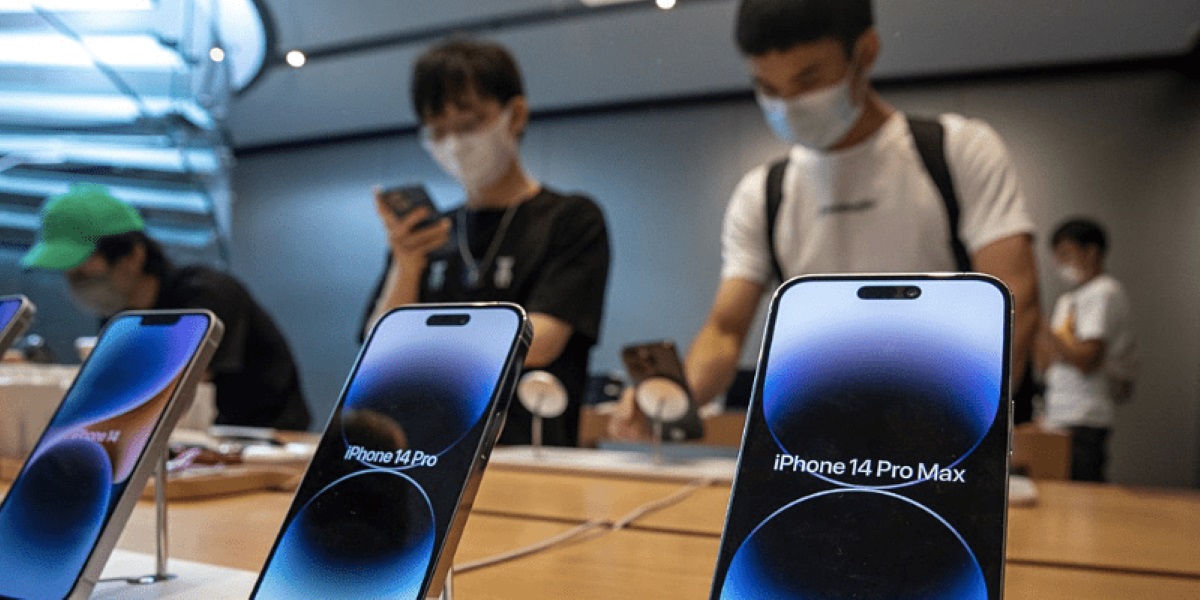Apple shares dropped by 2.9% on Thursday following reports that China intends to broaden its ban on iPhone usage to government-backed agencies and companies.
This development has investors concerned about the ability of the world’s most valuable public company to operate in the world’s second-largest economy.
Apple (AAPL) experienced its largest daily decline in over a month on Wednesday. The company lost roughly $200 billion in market value over two days, making its stock the worst performer in the Dow Jones Industrial Average.
These bans could signal trouble for Apple. China is Apple’s largest foreign market, with Chinese sales accounting for about one-fifth of the company’s total revenue last year.
Although Apple doesn’t disclose iPhone sales by country, analysts at TechInsights estimate that last quarter, iPhone sales in China surpassed those in the United States.
Additionally, the majority of Apple’s iPhones are manufactured in Chinese factories. Apple is expected to reveals its new iPhone at the “Wonderlust” special event.
Cupertino, California-based Apple has historically been viewed as relatively safe from government restrictions in China due to its significant role in Beijing’s economy, according to Brandon Nispel, an analyst at KeyBanc Capital.

However, these reported bans raise a crucial question: “Is the government changing its stance?”
On Wednesday, China had prohibited central government officials from using iPhones, with managers informing staff of the ban through chat groups or meetings.
On Thursday, the ban had been extended to state-backed firms, including the energy giant PetroChina, which employs millions of workers and controls large segments of the Chinese economy.
Analysts at Bank of America noted on Thursday that the potential iPhone ban coincides with the release of a new high-end flagship smartphone by Chinese manufacturer Huawei, calling the timing “interesting.”
The U.S. government announced on Tuesday that it was investigating this new smartphone.
During a White House press briefing, National Security Adviser Jake Sullivan stated that the U.S. needs “more information about precisely its character and composition” to determine if the chip in the new device was developed by bypassing American semiconductor export restrictions.
In response to the news, tech stocks fell, with the Nasdaq Composite dropping by about 0.9% on Thursday and the semiconductor sector declining by more than 2%.







Leave a Reply